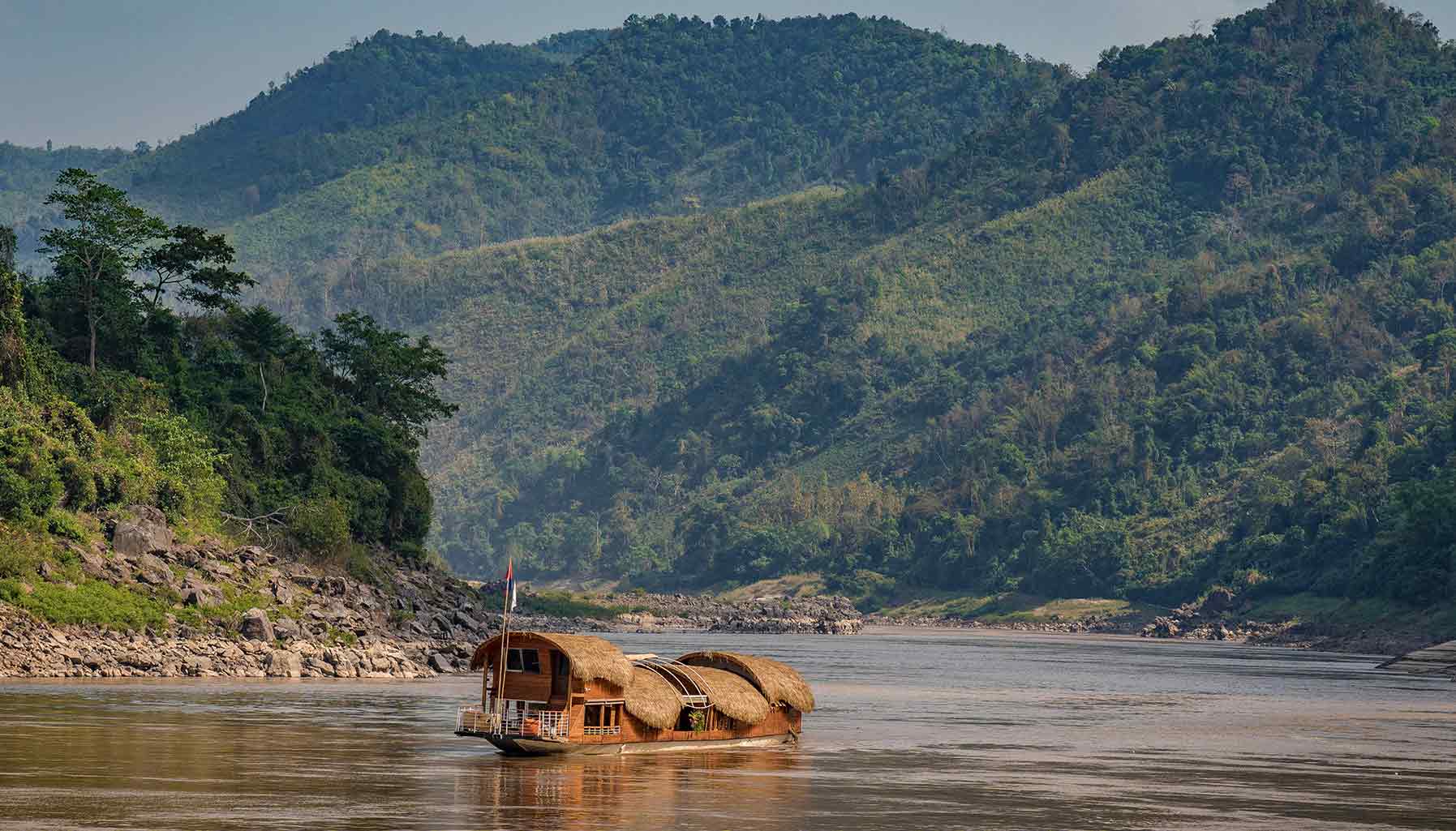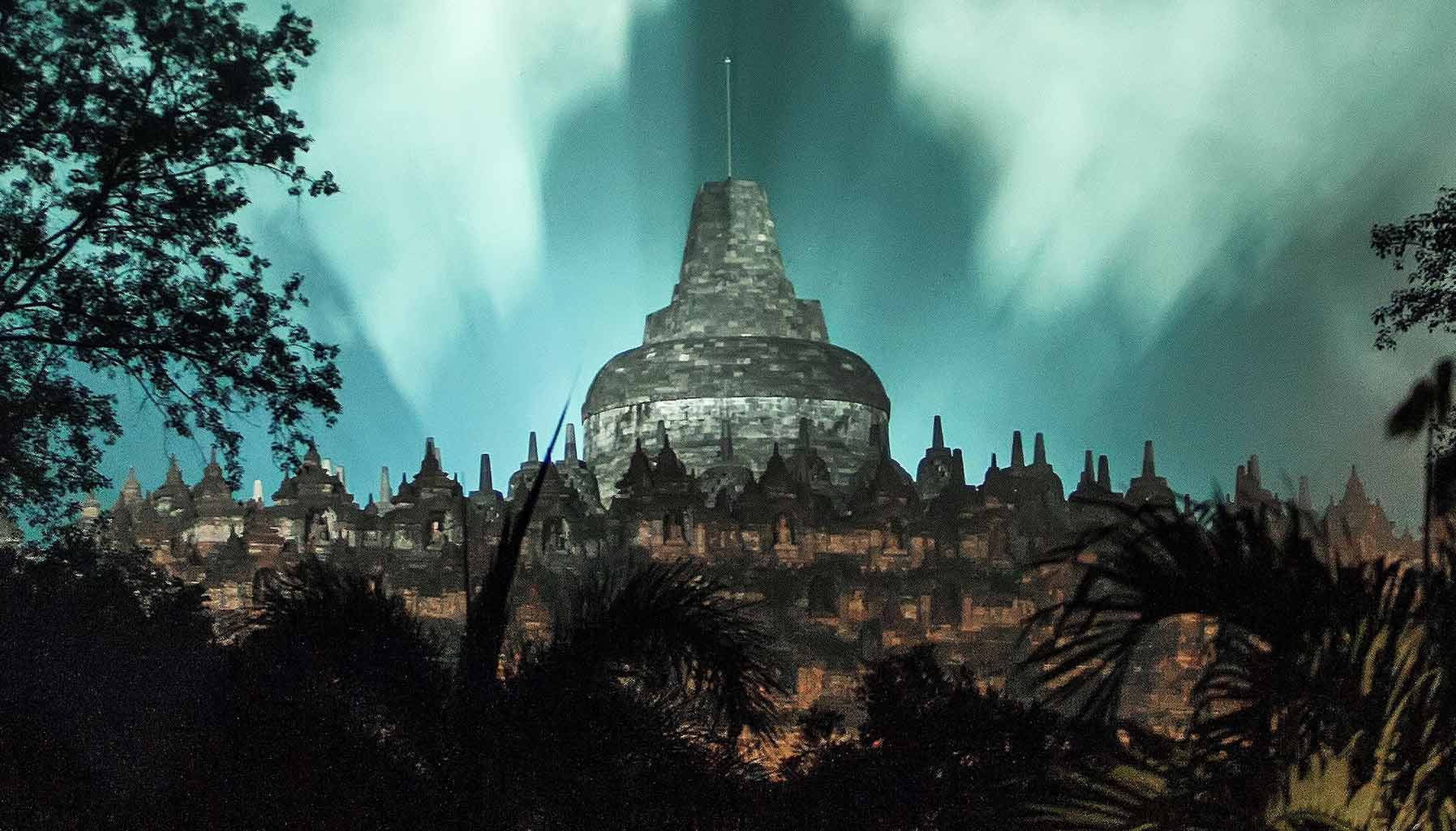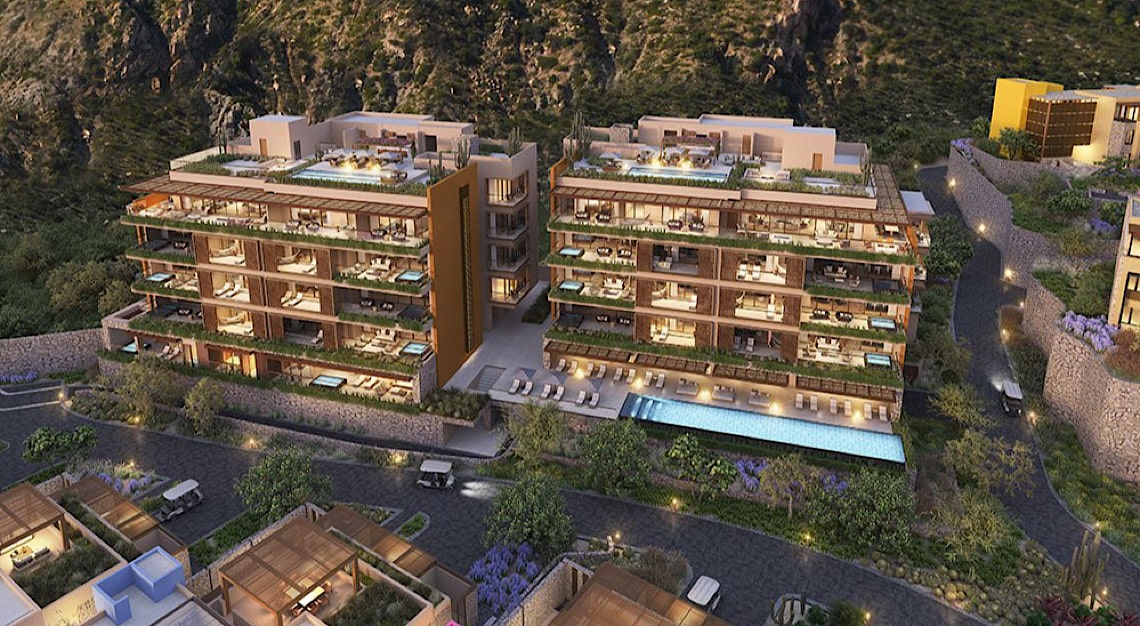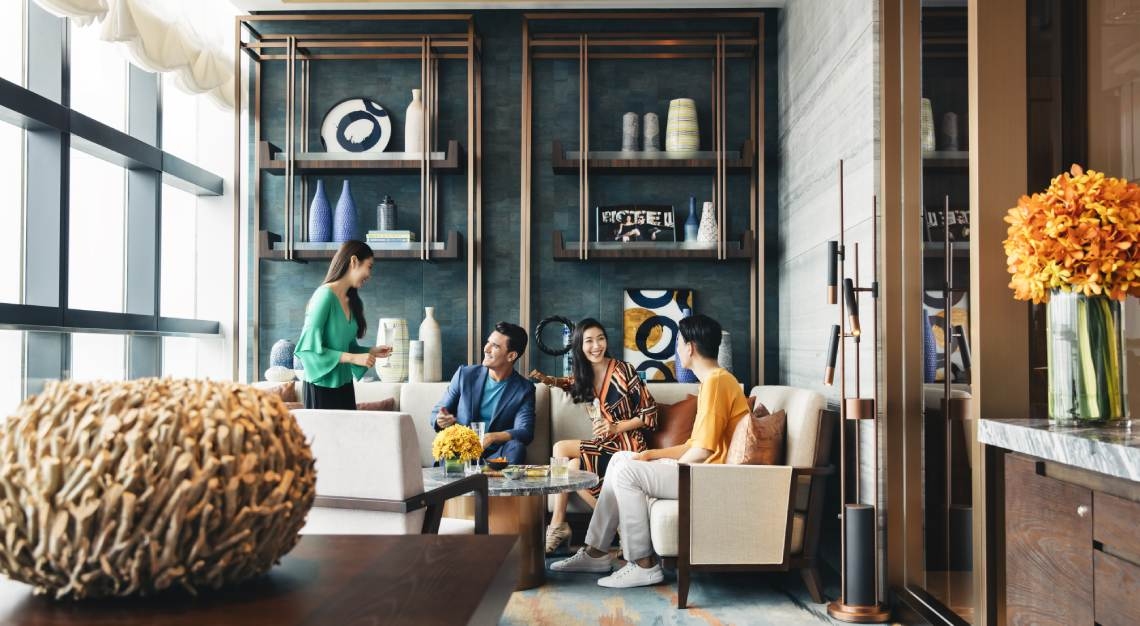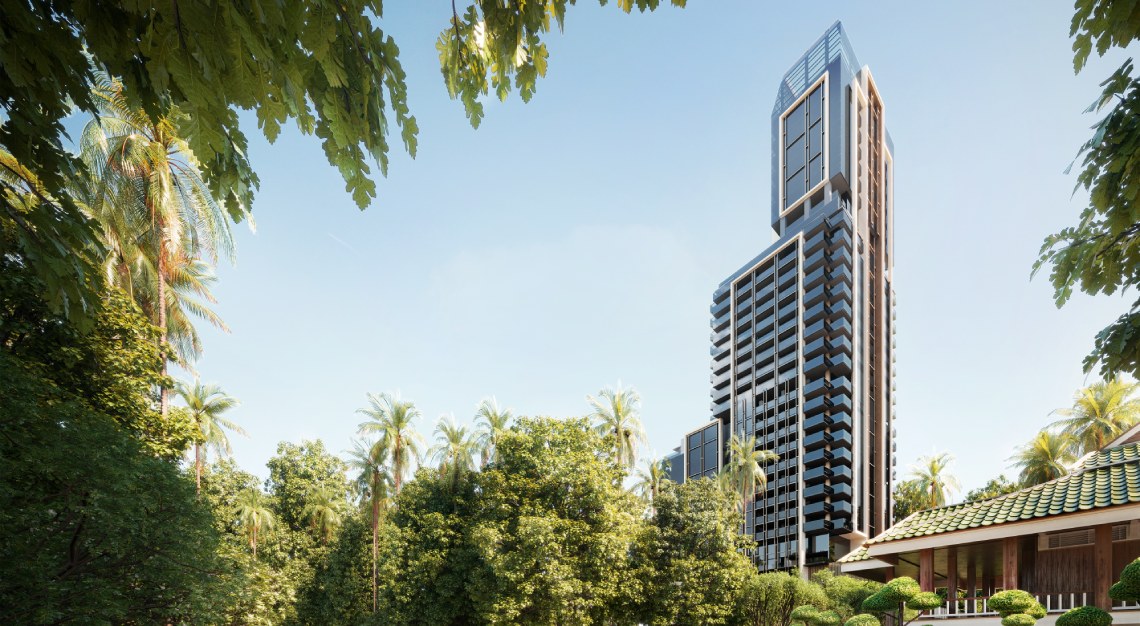The newly opened InterContinental Chiang Mai Mae Ping offers tailored experiences for an authentic journey through the mountainous city
Here’s how to make the perfect cup of tea. Start by selecting the right tea leaves. Opt for loose leaves over bagged ones for a more refined flavour. Add two teaspoons of leaves into a cup. Pour in boiled water and let the leaves steep. As you pour, observe how they unfurl. Wait for two to three minutes. Any sooner and the tea will yield a weak flavour. Leave it in for too long and the tea will taste bitter beyond repair. Strain the liquid. Finally, sip and enjoy.
I had memorised this ritual in anticipation of my trip to Chiang Mai. After all, this city to the north of Thailand is just hours away from where fleeing Kuomintang soldiers had established tea plantations to survive. With flavours so steeped in the region’s history, I had to have a taste.
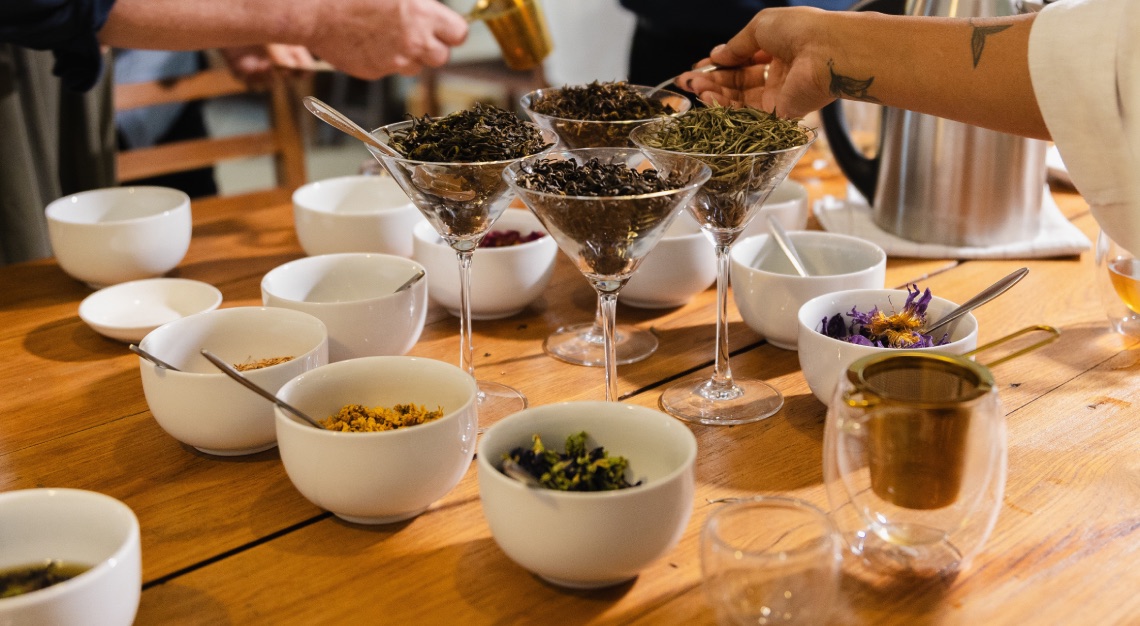
But upon arriving in the city, I soon realised that the highly anticipated sampling of the region’s tea would be a mere footnote in my journey. Old buildings cobbled from a mix of discoloured and reddish-brown bricks are interspersed among a myriad of massage parlours, food stalls, and cafes that line the streets.
Some of these structures are over 500 years old. Several stand tall, while others are toppled slightly, leaving mounds of bricks and earth whose original purpose can no longer be discerned. People on tuk-tuks and motorbikes zoom past on the busy roads. Occasionally, a biker—lugging a rickety cart behind his vehicle—would stop to offer fresh fruits and vegetables.
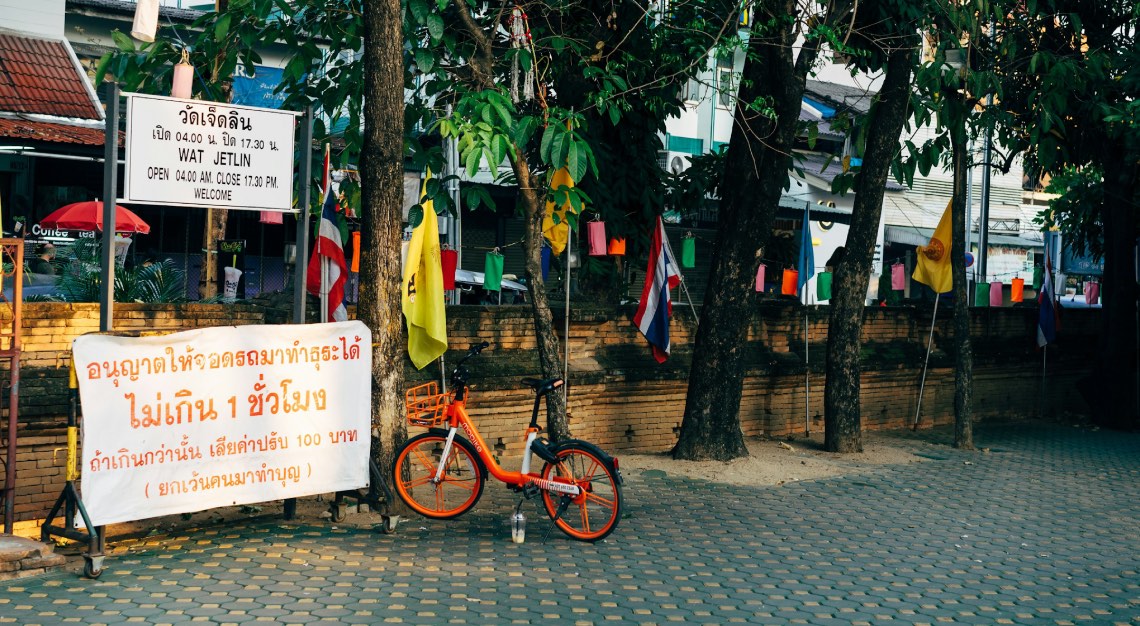
Chiang Mai—once the capital of the ancient Lanna Kingdom— is dizzying; its array of vibrant sights and sounds reverberating with how much there is to experience. To discover the city in the best way, one has to let themselves be steeped, slowly and patiently, in its culture and traditions.
The First Taste
My transport from the airport to InterContinental Chiang Mai The Mae Ping took only 15 minutes. Once known as Imperial Mae Ping, the newly renovated hotel looks impressive upon approach: its central fountain providing a visually striking foil to the sheer scale of the building. The lobby is open and grand, with high ceilings lending gravitas to the space. My eyes were drawn to the tall, twin-teak cabinets that displayed intricate artefacts.
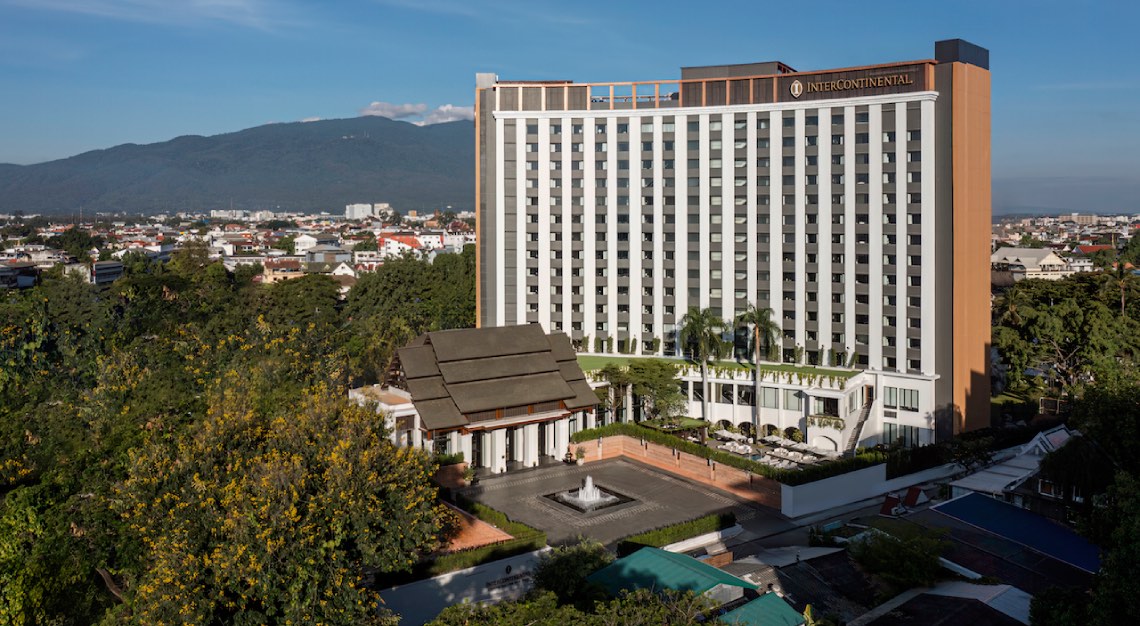
Before I could study the antiques, a concierge approached with a miniature gong in his hands. “Hit it”, he said, “for good luck”. I obliged.
After five years of renovation, the hotel, which opened in November 2023, looks contemporary, yet feels grounded in history. From the rammed-earth wall near the main entrance to the intricate gold leaf mouldings that adorn the guest lifts, the sprawling property is designed to evoke the architecture of the ancient Lanna Kingdom. As one walks through the hotel, they’ll notice the numerous teak fixtures that decorate every space—a nod to the ancient kingdom’s bustling teak trade.
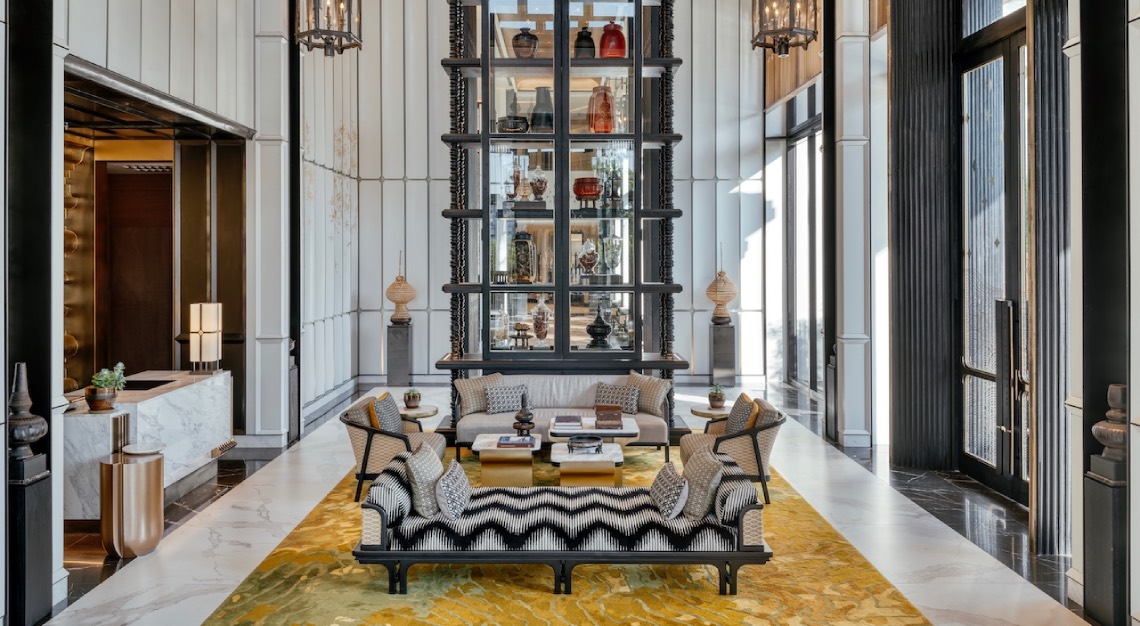
Lunch is served at Kam Lobby Lounge. If you ever choose to dine here, do yourself a favour and order Lung Phanom’s Beef Cheek Khao Soi. This coconut curry noodle soup, a traditional dish of Chiang Mai, has the perfect balance of heat and cream. Make sure there is a bit of everything on your spoon: the creamy broth, noodles, tender Wagyu, and crunchy fresh greens—and you will see how the dish comes together in a savoury melange of textures and sweet spicy flavours.
For an in-depth exploration of Northern Thai cuisine, head to The Gad Lanna. Here, you’ll find a menu of hearty and authentic local dishes made from fresh ingredients sourced from local farmers in the area. Ask to be seated outside so you can enjoy your food in the hotel’s serene lawn that overlooks a 600-year-old Buddhist stupa.
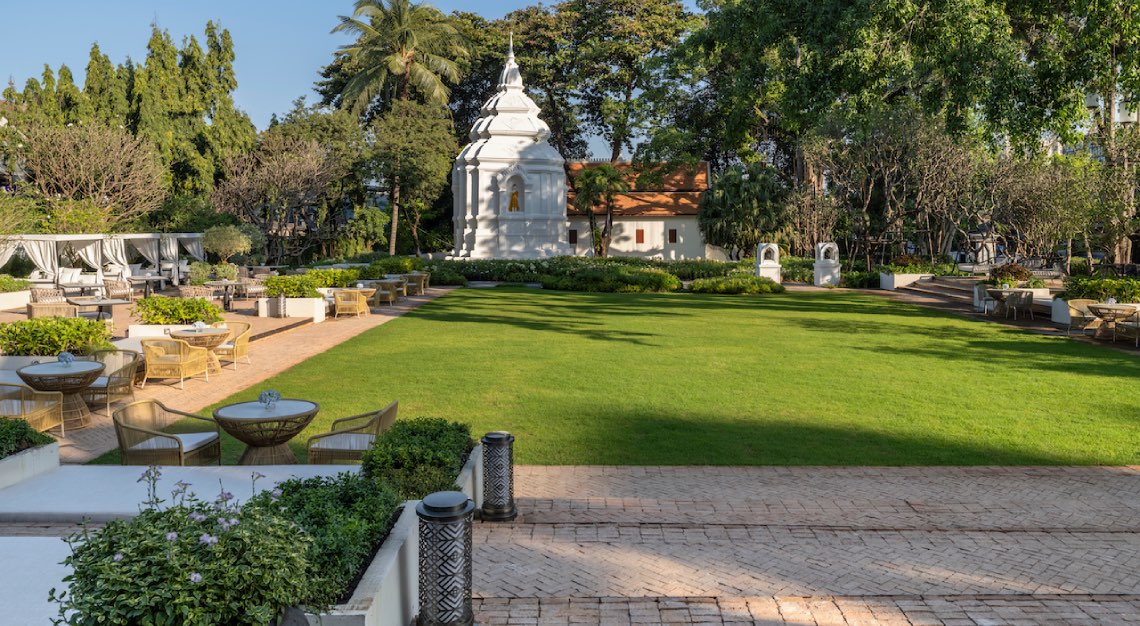
If you’re in the mood for Chinese, head to the 16th floor of the hotel and visit the newly opened Hong’s Chinese Restaurant for dinner. Savour a delectable medley of Sichuan, Cantonese, and Taiwanese flavours before heading up to the sky bar to enjoy crafted cocktails while taking in picturesque views of the city.
After lunch, I retired to my room. The hotel houses 240 guest rooms—all newly renovated to cocoon guests in intimate opulence while honouring the city’s traditional materials and craftsmanship. There are beautifully carved wood and stone, as well as intricate lacquerware handcrafted by local artisans. For those travelling alone or with one other partner, the Premium King room is perfect for your needs. Spacious and comfortable, it comes complete with a long desk where you can do your work (but should you?) and also offers a beautiful view of the mountains.
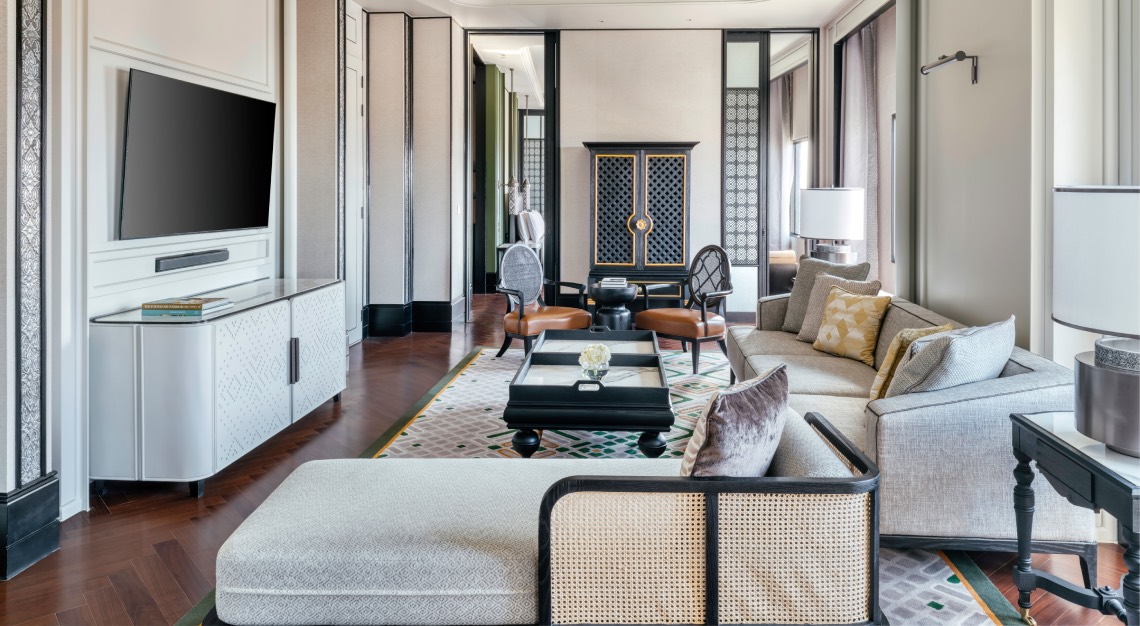
For prestigious options, consider booking a suite. There are three options: the 69sqm one-bedroom, the 114sqm Ambassador, or the 165sqm Presidential Suite. In the Presidential Suite, you’ll find intricate handcrafted furnishings and a majestic view of the mountains from a window that spans the entire length of the suite. Here, you’ll find the perfect space for a sizable travelling party, comprising a grand living room, dining room for eight, and a dedicated study room. Should you wish, there is the option to reserve an adjoining room to serve as an additional bedroom. Each suite comes with a dedicated concierge who will attend to your every need.
A City Brimming with Culture
It can be difficult to know exactly where to start when trying to explore a city as rich as Chiang Mai. There’s something for every kind of traveller: a cultural visit to the oldest sites, a close-up experience with majestic elephants at sanctuaries or a serene journey through the natural wonders of cascading waterfalls, sprawling forests, and mountainous peaks.
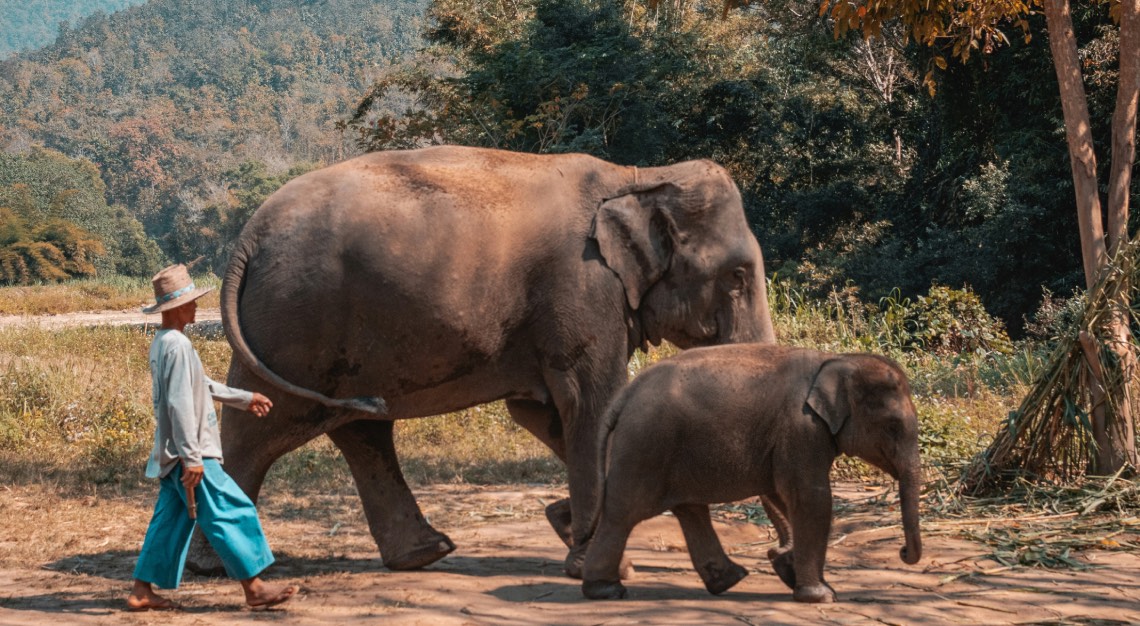
If you had hit the gong—and therefore were blessed with luck—you may even find the weather accommodating to a scenic journey over the city on a hot-air balloon. To have the best experience free from befuddlement, ask the hotel staff to curate a personalised itinerary for you, complete with transport and full access to historic sites. The hotel only partners with the best local guides and vendors, so you can be sure you’re receiving an authentic journey through Chiang Mai. Should you wish, the hotel can also arrange private tours of some of the historical sites and nature sanctuaries.
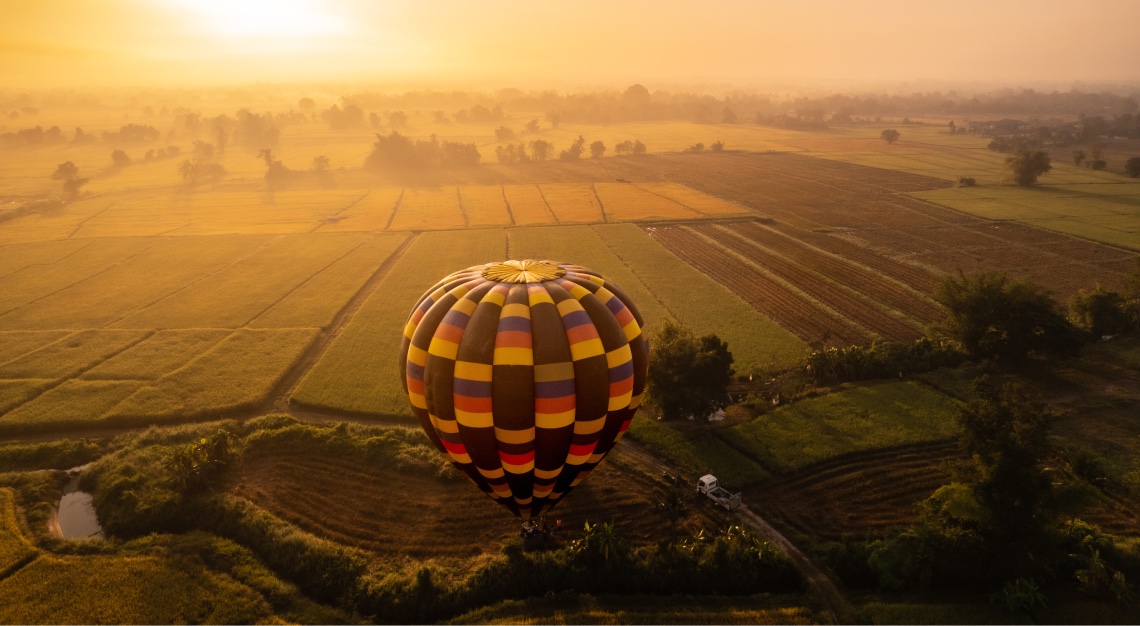
I opted for a steeping experience through the city’s culture. This meant a slow and deliberate trawl through the plethora of beautiful and historical temples, visits to the workshops of local artisans and, of course, a private tea-tasting session. It is merely a small sip of the city’s rich culture, but there’s plenty to take in. Chiang Mai’s majestic and centuries-old sites, pagodas and temples—some of which have lost parts of their structures to weather and earthquakes—offer a glimpse into the essence of the city and its people.
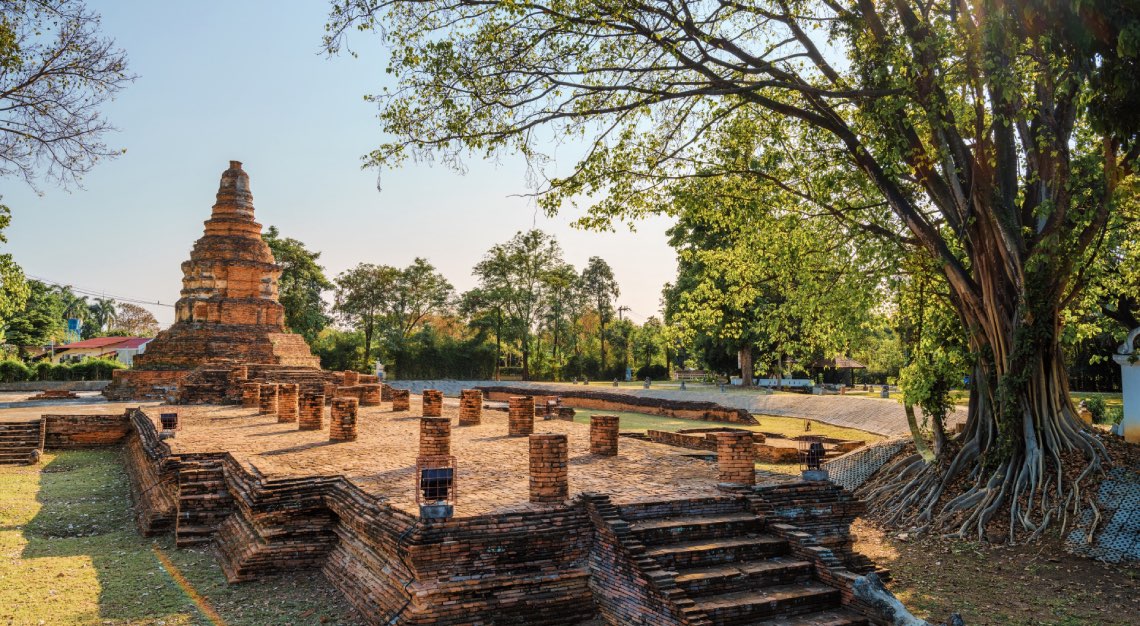
As do the workshop visits, where I witnessed deft artisans carve intricate pieces of art by hand, each movement deliberate and precise. And as I steeped a blend of the region’s tea in a cup, I stumbled upon the words to encapsulate that essence. Rich in flavour and steeped in history, Chiang Mai slowly unfurls its complexities as you journey through it—just like loose leaves in water.
Intercontinental Chiang Mai The Mae Ping
This story first appeared in the May 2024 issue. Purchase it as a print or digital copy, or consider subscribing to us here

